The Rhetoric of Soft Power
The Rhetoric of Soft Power
Public Diplomacy in Global Contexts
Craig Hayden
Lexington Books
Lanham Boulder New York Toronto Plymouth, UK
Published by Lexington Books
A wholly owned subsidiary of The Rowman & Littlefield Publishing Group, Inc.
4501 Forbes Boulevard, Suite 200, Lanham, Maryland 20706
www.lexingtonbooks.com
Estover Road, Plymouth PL6 7PY, United Kingdom
Copyright 2012 by Craig Hayden
All rights reserved. No part of this book may be reproduced in any form or by any electronic or mechanical means, including information storage and retrieval systems, without written permission from the publisher, except by a reviewer, who may quote passages in a review.
British Library Cataloguing in Publication Information Available
Library of Congress Cataloging-in-Publication Data
Hayden, Craig, 1972-
The rhetoric of soft power : public diplomacy in global contexts / Craig Hayden.
p. cm. (Lexington studies in political communication)
Includes index.
ISBN 978-0-7391-4258-5 (cloth. : alk. paper) ISBN 978-0-7391-4259-2 (pbk: alk.
paper) ISBN 978-0-7391-4260-8 (electronic)
1. International relations. 2. Diplomacy. 3. Communication in politics. I. Title.
JZ1305.H39 2012
327.2dc23 2011036917
 The paper used in this publication meets the minimum requirements of American National Standard for Information SciencesPermanence of Paper for Printed Library Materials, ANSI/NISO Z39.48-1992.
The paper used in this publication meets the minimum requirements of American National Standard for Information SciencesPermanence of Paper for Printed Library Materials, ANSI/NISO Z39.48-1992.
Printed in the United States of America
Acknowledgments
This book came together over the course of three years, and drew from an ongoing personal research program to compare different kinds of public diplomacy and strategic communication around the world. The project became a book only after I thought about this project with the help of an eclectic community of friends and colleagues who share an interest in public diplomacy. This research would not have been possible without the encouragement of my colleagues at the University of Southern California, the University of Virginia, and my home institution, the School of International Service at American University. At American University, Nanette Levinson of the SIS International Communication Program worked diligently to provide the kind of institutional support necessary to write a book while on the tenure track. I also owe a debt of gratitude to colleagues, friends, and advisors who have helped me along the way by sharing their ideas and comments on this book and project, including Bruce Gregory, Shawn Powers, Amelia Arsenault, Matthew Armstrong, Nicholas Cull, Jan Melissen, R. S. Zaharna, Robert Albro, Robert Kelley, Patrick Thaddeus Jackson, and Dan Sreebny, among many others. I am also grateful for the help of my research assistants and student colleagues at American University, including Jacquelyn Chi, Kia Hall, Rena Hinoshita, Shanti Shoji, Anna Cheung, Efe Sevin, and Yelena Osipova. I am also quite thankful for the patience of Lexington-Rowman and Littlefield as I slowly put the pieces of this puzzle together.
Chapter 1
Introduction
Why do international political actors increasingly believe that to communicate to foreign audiences is crucial to their interests? When material resources such as military and economic assets offer visible measures of potency on the global stagewhy should communicative resources like information, culture, and other symbolic factors be considered vital to the practice of international relations? These questions are posed in this book to address the growing number of foreign policies around the world designed to influence, persuade, and to cultivate support in foreign audiences. These policies reveal the pervasive influence of soft power Joseph Nyes intuitive and sweeping amendment to the traditional field of international power politics that asserts the inclusion of persuasion and culture to the instruments of nation-state power. Soft powers currency is most readily observable in the spread of public diplomacy initiatives and similar policies. This book presents a comparative analysis of the words and actions surrounding such programs from a selection of actors around the world.
The idea that information and communication are important to the relative power of the state is not new. Nor is the place of persuasion in the conduct of international relations. While public diplomacy after September 11, 2001, is often discussed in the United States as a battle of ideas, the notion of struggle between competing ideologies broadly framed international relations throughout the twentieth century. The context of the twenty-first century, however, presents new challenges for nation-states and other actors on the global stagein part because the role of information, culture, and communication in the practice of international politics has changed. The erosion of informational sovereignty in the wake of rapid media globalization, the widespread dissemination of communication and information technologies (ICTs), and the concurrent use of such ICTs to organize and assert a political presence presents new challenges to nation-states. These trends form a backdrop to the events of 9/11 in the United States, which forced a renewed focus on identity, culture, and communication for U.S. diplomatic strategya move that coincided with widespread recognition of soft power as an essential component of foreign policy thinking.
Soft power has since proven to be a compelling justificatory logic from which to argue for and implement a range of programsfrom media-based advocacy to nation-branding. It transforms the calculus of international influence by describing how the relative attractiveness of an actors culture, policies, or actions can be leveraged to achieve foreign policy ends. In Nyes formulation, soft power is both an asset to cultivate and a tool to use, a kind of public opinion capital that has raised the profile of communication-centric foreign policies such as public diplomacy, international broadcasting, and other forms of strategic communication. The widespread currency of this notion has lead many countries to pursue communication-based goals, such as to improve their credibility, to influence media representation, and to establish stronger ties with foreign publics.
This book provides a critical examination of how soft power is articulated in public diplomacy and strategic communication policies across a range of international actors. This book examines the cases of China, Venezuela, Japan, and the United States. These are certainly not the only international actors engaged in public diplomacy, but each case illuminates a different aspect of how the notion of soft power has been interpreted and implemented. For each of these actors, public discourse (from leaders, analysts, and media) and related policy initiatives reveal fundamental assumptions about soft power as an orientation toward the practice of international affairs and the role that communication plays in sustaining global relations.
The discourse and practices of soft power are presented here to illustrate comparative perceptions of what constitutes such relationssuch as the meaning of public, the relation between media and audience, and fundamental expectations about influence via such policies. This body of evidence is presented as a rhetoric of soft power; an instructive selection of policy discussion and public argument from which can be derived the contextual fields of reasoning that shape how such programs are imagined and more broadly, particularistic views of what constitutes necessary international political action through communication.
Each case was selected to represent a diversity of interpretations about soft power that captures the distinctive context of each actor, as well as how the components of soft power (culture, audience, etc.) are reflected in the practice of public diplomacy programs. The United States has a well established tradition of public diplomacy programs that is fraught with internal debate over its efficacy and the content of its message. China has embarked on a multimodal campaign to confront what it believes to be a kind of hegemony over its representation in the global media sphere that threatens its rise to power. Venezuelas public diplomacy includes an international broadcasting campaign to capitalize and cultivate a regional identity through an alterative news service. Japan is a post-industrial power that seeks to leverage its considerable cultural industries into a strategic asset for its foreign policy. Each of these cases elaborate a situated understanding of soft power, and in the process recontextualizes the relationship between media, foreign policy, and the developing norms of international politics in a globalized age.
Next page
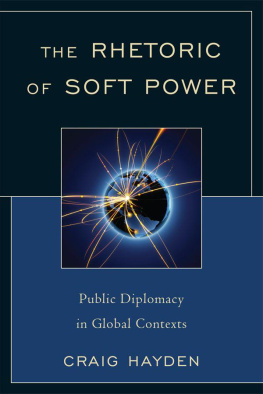
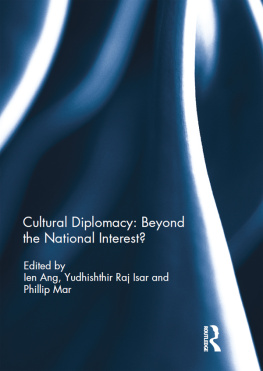
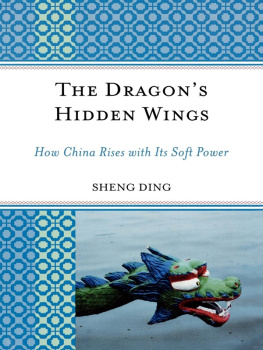
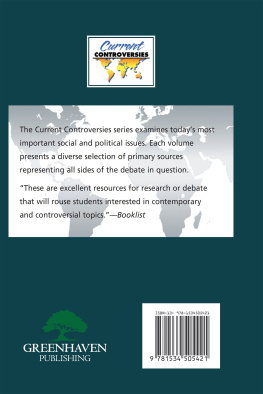

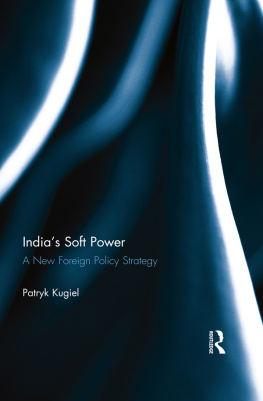
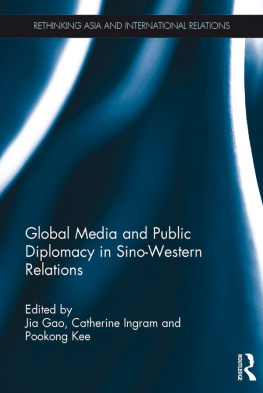
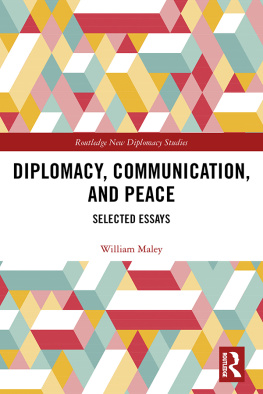
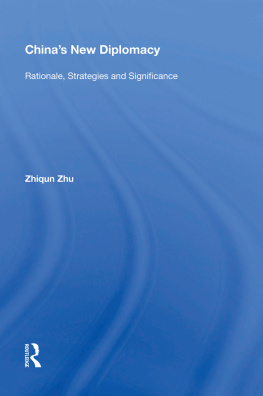
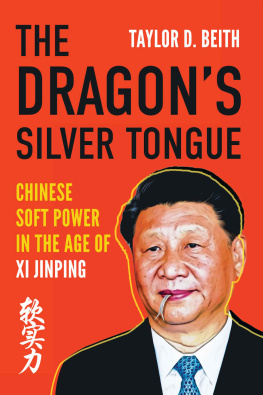
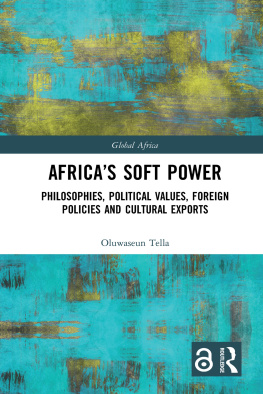

 The paper used in this publication meets the minimum requirements of American National Standard for Information SciencesPermanence of Paper for Printed Library Materials, ANSI/NISO Z39.48-1992.
The paper used in this publication meets the minimum requirements of American National Standard for Information SciencesPermanence of Paper for Printed Library Materials, ANSI/NISO Z39.48-1992.